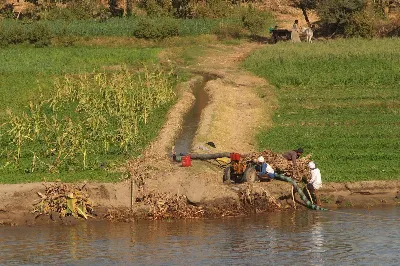The National Space Research and Development Agency (NASRDA) has collaborated with Georgia State University (GSU), USA to deepen research on cosmic rays, space weather and climate change.
The duo agreed on the partnership when Prof. He Xiaochun, the Director of Physics and Astronomy, at GSU, paid a working visit to the Director-General of NASRDA, Dr Halilu Shaba, in Abuja on Friday.
Xiaochun introduced a Cosmic Ray Muon Detector built by the institution, which had already been in use and could take measurements of cosmic rays accurately.
He explained that a global collaborative effort was needed in studying activities relating to climate change, hence the device would enhance the study of space and earth weather in real-time.
He also said the device could monitor radiation changes emanating from solar activities, the atmosphere and how it interacted with the human environment.
Aside installation of a similar detector in the U.S., Sri Lanka, Columbia and Singapore, the don explained that Africa with its unique landscape and continental weather change, attracted him to Nigeria.
“The important part of this project is to get students interested in studying climate change globally.
“By gathering enough data collected and analysed, it can be used to develop a model to forecast the future of our climate, space events and mitigate the disasters.
“The research findings will help governments, industries to take decisions to have less emissions, work toward having clean air because cosmic radiations are constantly coming from space,” he said.
The DG of NASRDA, in his response, said that the agency would utilise the detector to provide quality information for the government and interested parties.
He added that NASRDA would encourage young scientists in the agency’s institute, across the country, to key into cosmic rays and space weather research.
According to him, Nigeria must become an active player in mitigating the effects of climate change on the environment.
The Director, of UN- African Regional Centre for Space Science and Technology Education in English (UN-ARCSSTEE), a research centre of NASRDA, Prof. Babatunde Rabiu said Nigerians would benefit from capacity building from the collaboration.
“It is going to enhance our capacity building, because Nigerians are going to be the principal beneficiaries of programmes associated with this device.
“We shall be jointly organising workshops, training, students’ exchange, exchange of researchers between the institutions, and with time engage in local fabrication of cosmic rays’ detector and training,” Rabiu said.
He said that the device would enhance the predictability of space weather, and terrestrial weather which would increase the accuracy of measurements.
According to him, the device takes measurements in real-time, which will enable us to know what is happening in space because it is a good instrument for monitoring the entire spectrum of the atmosphere.
NAN


